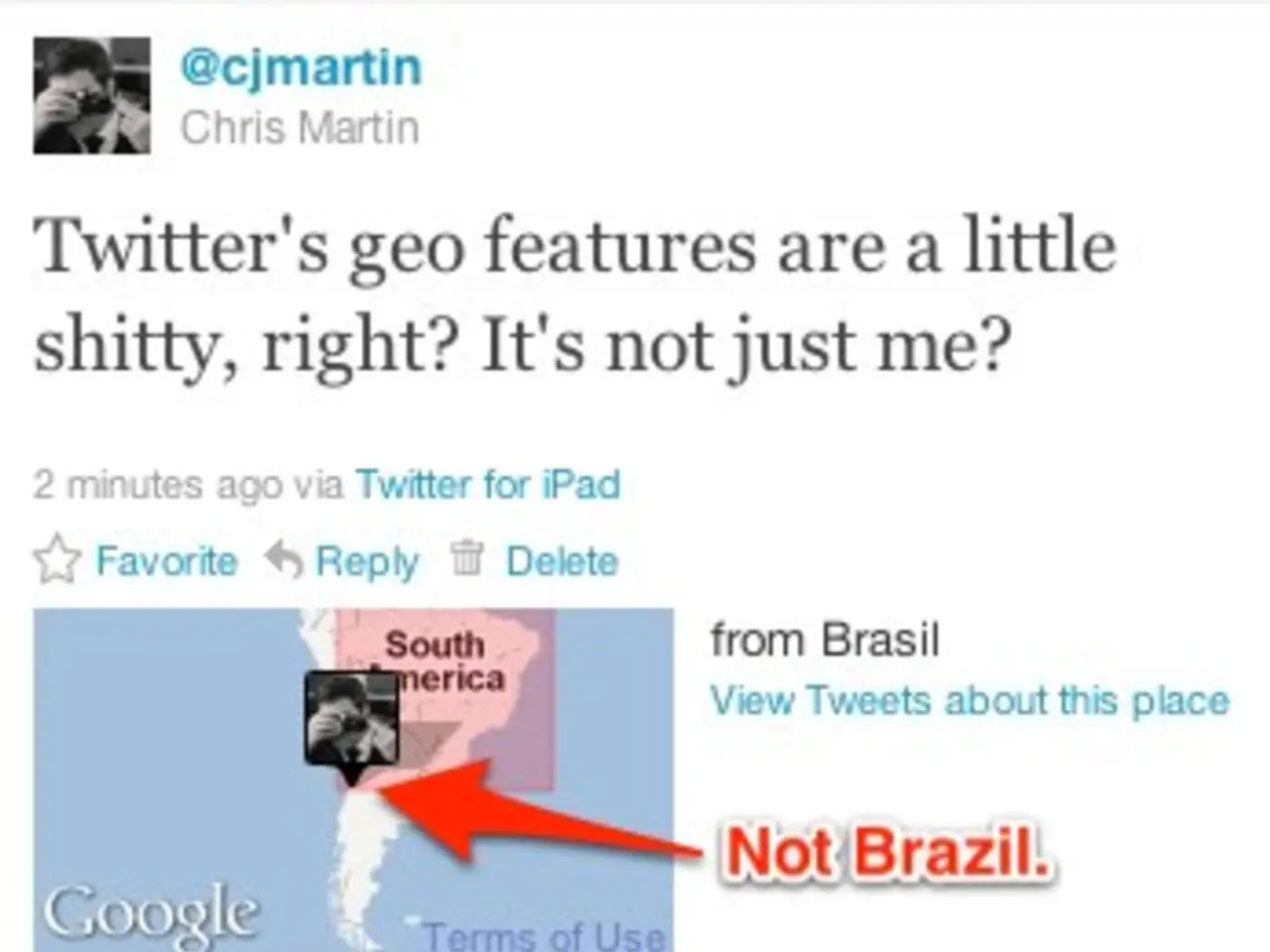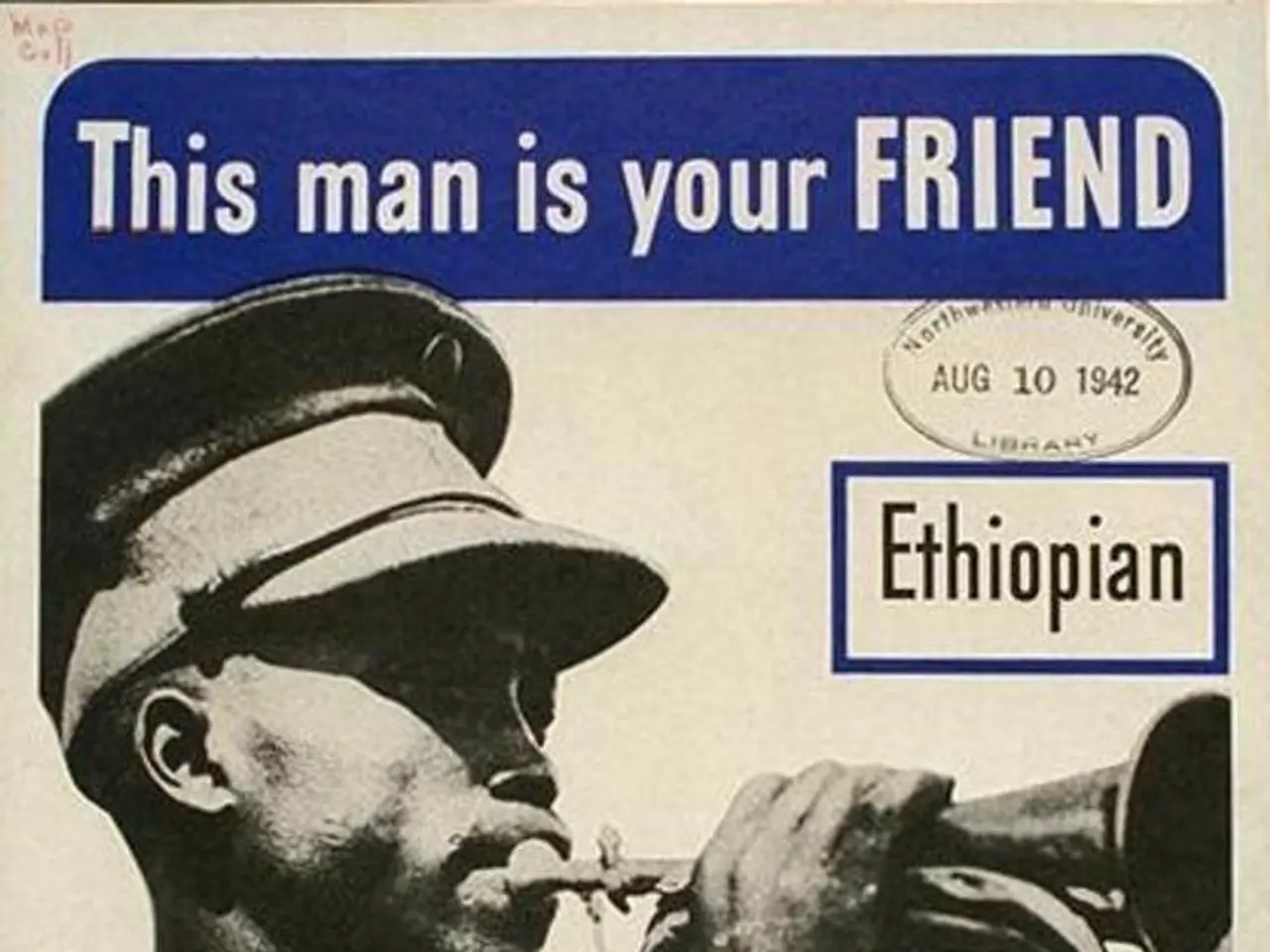Europe's soft negotiators will acknowledge an illusion - not 'Palestine'
France and Britain's Unilateral Recognition of a Palestinian State: Implications and Uncertainties
The announcement by French President Emmanuel Macron and British Prime Minister Keir Starmer to unilaterally recognise a Palestinian state has sparked a wave of discussion and debate. This move, if implemented, would have significant consequences for the region and the ongoing Israeli-Palestinian conflict.
Firstly, the recognition would signal a major shift in Western diplomacy, offering strong international support for Palestinian statehood without preconditions tied to Israeli actions or peace negotiations[1][2]. However, there are uncertainties surrounding several key aspects.
For instance, it remains unclear if France and Britain will support open elections in the new Palestinian state, or recognise a state if a group like Hamas or a similar organisation wins those elections. The Palestinians have consistently rejected any arrangement for a state that does not include "a right to return" into Israel proper[5].
Moreover, the potential consequences include the possibility of increased violence and militant activities. The recognition of "Palestine" may incentivise such behaviour, as it could be seen as a reward for continued resistance[6]. It is also unclear if France and Britain will send troops to intervene in potential conflicts or militant activities in the new Palestinian state[7].
The Palestinians in Gaza have been criticised for their unwillingness to build the basic infrastructure necessary for themselves, despite receiving hundreds of millions in yearly aid[8]. This has led some to question whether a new Palestinian state would be capable of sustaining itself without external support.
Another point of contention is the Palestinian Authority's reliance on Israel's security apparatus to maintain its power[9]. The potential withdrawal of Israeli security could create a power vacuum, potentially leading to further instability.
The current leader of the Palestinian Authority in the West Bank, Mahmoud Abbas, is 89 years old[10]. The future leadership and its impact on the peace process are uncertain, adding to the complexities of the situation.
The recognition of Palestine as a state by France and Britain does not change the fact that Palestine does not exist as a geographical entity[11]. This raises questions about the practicality and feasibility of creating a viable state in the current political climate.
The recognition of Palestine could also strain relations with countries opposing or cautious about the move, including the United States, which has not endorsed these recognitions and emphasises peace through negotiation rather than unilateral declarations[3].
In conclusion, the unilateral recognition of a Palestinian state by France and Britain could potentially heighten diplomatic pressure for peace and Palestinian statehood, but it also risks exacerbating political tensions, potential security issues, and complications in the peace process given the ongoing conflict and dissenting international reactions[1][2][3][4].
References: 1. BBC News 2. The Guardian 3. Reuters 4. The Jerusalem Post 5. Al Jazeera 6. The Washington Examiner 7. Haaretz 8. The New York Times 9. The Times of Israel 10. CNN 11. The Washington Institute 12. The Washington Examiner 13. The Jerusalem Post
- This unilateral action by France and Britain in recognizing a Palestinian state could significantly impact the regional policy-and-legislation and global politics, particularly with regards to the Israeli-Palestinian conflict.
- The implications of this move extend beyond the announcement, as it could influence the general-news narrative, especially coverage of elections, security, and the peace process in the new Palestinian state.





